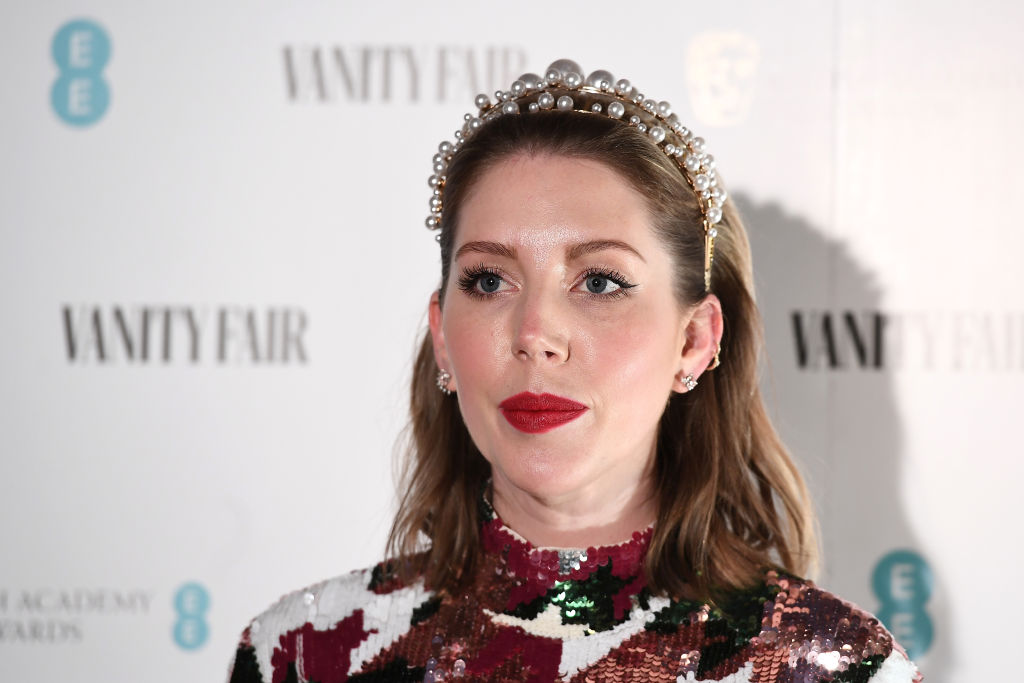Is Mock the Week sexist? It’s a question that has haunted the BBC’s topical comedy panel show for much of its 15 years. And one of its most prominent female former panellists has just reignited the debate by claiming the show practises a kind of ‘pedestal feminism’, giving a few female comics a go to deflect criticism of its otherwise manifest sexism.
‘I had to stop doing it’, said Canadian comic Katherine Ryan, who has clocked up seven MtW appearances, on her podcast recently. ‘I knew that every time I was booked I was taking a job away from one of my female peers… I couldn’t do it anymore because of that fact alone – ‘No, Mock the Week doesn’t have a problem with women, look, Katherine Ryan’s on the show’.’
She stopped doing the show in 2015, a year after the BBC introduced a quota mandating at least one female comic per panel show. It was introduced largely in response to criticism of Mock the Week’s overwhelmingly male lineups, and an allegedly blokeish and competitive atmosphere that Jo Brand and others suggested was inhospitable to female comics.
Of course, concerns about tokenism were precisely why many opposed the quota in the first place. Mock the Week host Dara O Briain told the Radio Times in 2014 that the edict was patronising to female comics. He even namechecked Ryan, saying female MtW stars like her, who earned their spot on the basis of their talents, ‘will suddenly look like the token woman’.
That turned out to be quite prophetic. Six years later and Ryan is not only criticising that quota for its tokenism, but also painting it as a kind of sexist con. That the show has more recently featured two female comics in episodes is, according to Ryan, yet more proof of how far it has to go. ‘And now look, they will let two of us on in the same week!’, she said on her podcast.
This is a reminder that, in the battles over diversity, even an institution as thoroughly politically correct as the BBC cannot win. You introduce measures to placate those convinced, in this case, that a lack of female comics on panel shows can only be a sign of the producers’ sexism, and those measures are themselves eventually painted as part of the problem.
Nothing ever seems to be enough. In response to the Black Lives Matter movement, the BBC has promised to spend £100million of its TV budget on a new diversity drive. As spiked’s Fraser Myers has pointed out, BAME people are actually currently over-represented in on-screen contributions. But the demands for more ‘representation’ often ignore the reality.
So how many female comics on Mock the Week would be enough? It might seem a crass question, but this is precisely the sort of game we are drawn into when such a dehumanising, bean-counting approach to booking talent is adopted. Meanwhile, the inconvenient fact that the number of male comics far outstrips that of female comics is largely brushed under the carpet.
The real problem with gender quotas is that they are, by definition, sexist. They presume that female comedians can’t make it on their own, and in this case can’t possibly thrive on the ‘competitiveness’ of shows like Mock the Week. They also inevitably lead audiences and female comics themselves to question whether women have been put there for the sake of it or because they’re actually funny.
Meanwhile, the real problem with Mock the Week is that, 15 years in, it is creatively spent, lacking any sense of daring, and painfully unfunny. Like so much BBC comedy output it has long functioned as a kind of affirmative-action scheme for mediocre, middle-class comics who confuse biting political satire with Brexit-bashing and consider ‘the Daily Mail!’ an all-purpose punchline.
Interestingly, a comedian friend tells me that the stifling preachiness of shows like Mock the Week is probably a much bigger block to the great female acts, along with a tendency to book millennials over more battle-honed acts. ‘Some of the best female comics would never get on, either for their views or because they’re too old’, he says.
Perhaps if Mock the Week did something as radical as book people because they are funny, rather than because they tick the right political or identity box, female comics would get a much better shake of it.
Tom Slater is deputy editor of spiked







Comments